REPORT: Muslim discrimination hits 92% in Washington State; Spokane community members speak out

News Story by Cassy Benefield | FāVS News
The majority of Muslims in Washington State experience bias or discrimination. This accords with the inaugural report on Muslim demographics and discrimination in the state, sponsored by the Washington chapter of the Council on American-Islamic Relations (CAIR-WA).
The recently released 2024 Washington Muslim Survey report shows nearly 92% of Muslims say they have experienced discrimination in the state, with 82.5% having experienced this in the last year.
Of those who identified as having experienced bias in the last year, almost 55% responded they regularly visually identify with religious or cultural attire, such as a niqab, kufi, hijab or traditional outfit.
‘Go back to your country!’
This rings true for Karen Stromgren, Bushra Alshalah and Farrah Alsaffar — Muslim women who live in the Spokane area. Stromgren does not wear a hijab and is a white woman born in America. Twenty-five years ago, she married a Pakistani man, who has been an American citizen for about 40 years.
Alshalah and Alsaffar do wear hijabs, are mother and daughter, respectively, and immigrated to the U.S. from Iraq in 2014.
While they present their faith differently, visually, they have also experienced discrimination in Spokane.
Alshalah works for Refugee and Immigrant Connections Spokane (RICS) as their Refugee Elders Services program coordinator. She related a story of walking across the street with several of her RICS clients when a woman said to them, “Go back to your country!”
Her clients, who didn’t know English, asked her what the woman said, and Ashalah told them the woman was upset because “we were walking slow.” She didn’t want to add to their difficulties of already feeling like they don’t belong.
“Her words for me really ruined my day,” Alshalah said. “This is my country. I’m working here. I’m doing whatever I am supposed to do. I love this country. I support this country. Why are you telling me to go back to your country?”
‘Some wounds don’t heal’
Alshalah’s daughter — Alsaffar, a Whitworth University graduate and a pharmacy technician — shared a story that happened to her younger sister last year, an act of discrimination for which she called the police.
One day, Alsaffar noticed her sister crying with her door locked to her room. She hated seeing her sister that way. She eventually found out someone called her a terrorist in her middle school.
“Some wounds don’t heal,” Alsaffar said, referring to even verbal discrimination.
Alsaffar did not blame the child who said that to her sister, but she did blame his family at the time. All parties have since reconciled, with both the family of the child and the child apologizing to her sister and her family.
She thinks if people were educated more about Muslims and why they immigrate to other countries, bias and discrimination would decrease. For example, if people knew a part of her family’s story, they might be less fearful of those who fled to America.
“Two of my uncles were killed … [by] terrorists that are in my country,” Alsaffar said. “So even the Muslim terrorists are not killing you, they’re killing us Muslims.”
Kathryn Garras, RICS executive director, keeps her pulse on bullying and Islamophic incidents with her clients, including their children in the schools.
“I can happily share that, so far, the response has been that there haven’t been any Islamophobic bullying incidents that our staff are aware of yet this year,” Garras said. “Of course, that doesn’t mean that it isn’t happening, but we don’t have anything new to share.”
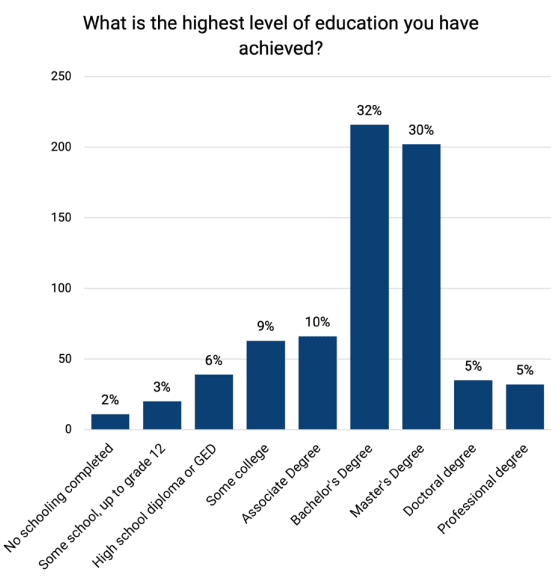
‘Yes, I’m a Muslim, but I’m white.’
Stromgren is another person who stays aware of incidents like these happening to Muslims in the area. She leads Muslims for Community Action and Support (MCAS) as its executive director. In 2021, the organization officially became a non-profit.
It works alongside local agencies and the community to educate others about Muslims and to advocate for and to support the local Muslim population.
Her story diverges from Alshalah and Alsaffar’s in that she was born in America and she became a Muslim 27 years ago, two years before marrying her husband.
“I didn’t feel like I belonged anywhere until I became Muslim,” Stromgren said. “Now I have all these wonderful brothers and sisters. It’s amazing.”
One of the discrimination stories she shared happened at the time when America was reeling from the 9/11 tragedies.
She was pregnant with her daughter, and at that time, Stromgren did visually identify as Muslim with a head cover and a very long skirt.
While out at the grocery store, in the post-9/11 climate, she remembered a woman to her right saying “boom,” as she picked up some yogurt from the cooler.
“I just said, ‘But I’m white,’” Stromgren said about her response to the woman. “‘Yes, I’m a Muslim, but I’m white.’”
From that time forward, she knew raising her children in the U.S. would come with even more discrimination for them.
“I was so terrified of my children being racially profiled and being racially assaulted,” she said. “Racism is real, and it doesn’t matter if you’re white wearing a headscarf. I can’t even imagine how it is for those individuals who wear headscarves and who are brown or black.”
Local city council member surprised by discrimination statistics
Experiences of racial profiling and assault by law enforcement was a key question on the survey. They received 542 complete responses, and of those, 22 came from the east side of the state.
Muslims statewide reported they were unfairly stopped, search or questioned (29.2% statewide / 50% in eastern Washington); they were treated differently than their peers/those around them (25.6% statewide / 27.3% eastern Washington); and they felt physically unsafe (15.3% statewide / 22.7% eastern Washington).
Other options were available to choose from and respondents were able to mark any that applied.
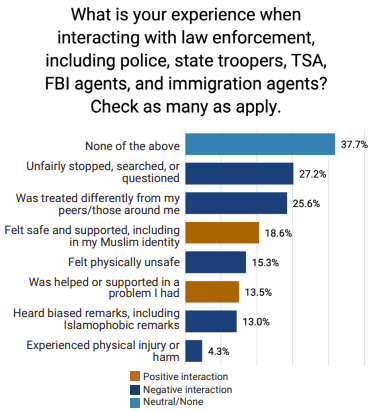
When Council Member Michael Cathcart learned of some of the statistics in the CAIR-WA report, he was taken aback so many Muslims in Washington experience this amount of discrimination. He said Washington was “probably one of the most inclusive states.”
“I’m kind of surprised that that’d be the case, and I would assume that they’re advocating at the state levels, but the local level … there hasn’t been a lot of direct outreach,” Cathcart said.
One of the survey’s recommendations said outreach by any policy-making officials, including in local government, is vital. This could include, for example, helping increase Muslim representation on local boards or commissions through education about that process, as well as actively helping increase voting engagement.
“The most urgent and important recommendation for governmental leaders is simple: connect with the Muslim communities that you serve,” the report reads. “This can be done by visiting mosques, hosting speakers, and making a concerted effort to engage this constituency.”
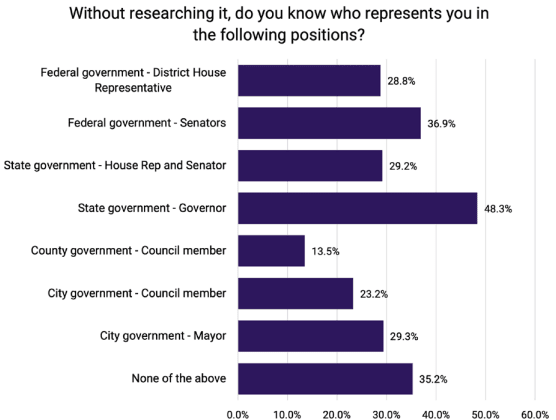
Palestine and other findings
Palestine rose to the top as one of the most important concerns of survey respondents statewide (77.9%), with civil rights (67.3%), racial justice (57.6%) and education (57.4%) following.
CAIR-WA recommended institutions and individuals recognize that Palestine “is the key issue of the moment and the human rights issue of this era.” They suggested organizations and institutions be clear if they stand with Palestine and Palestinians.
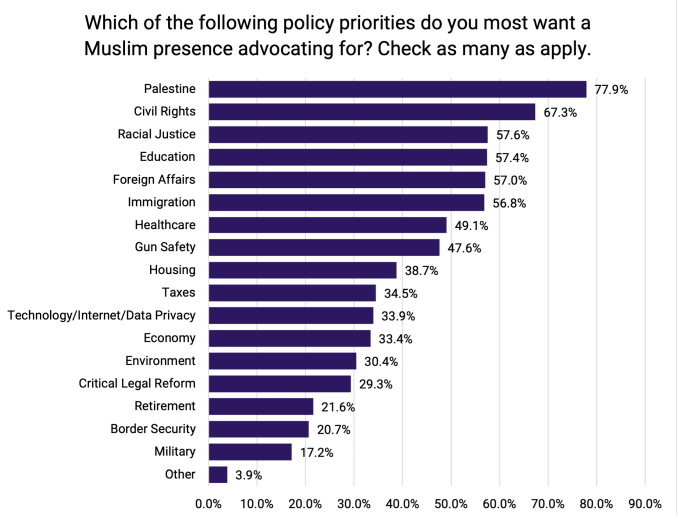
They also had this to say about what employers can do.
“For employers, it is especially important to be clear about their stance in order to retain Washington’s Muslims, Arabs, and Palestinians, who may feel, at best, a values misalignment and, at worst, unsafe if their employer is silent on the issue of Palestine,” the report said.
As for the workplace as a place of discrimination with policies or practices, the majority of respondents (56.7%) said they don’t experience it at all, with some saying they do at least three times a month (10%), once a week (6.7%) or most days (3.9%).
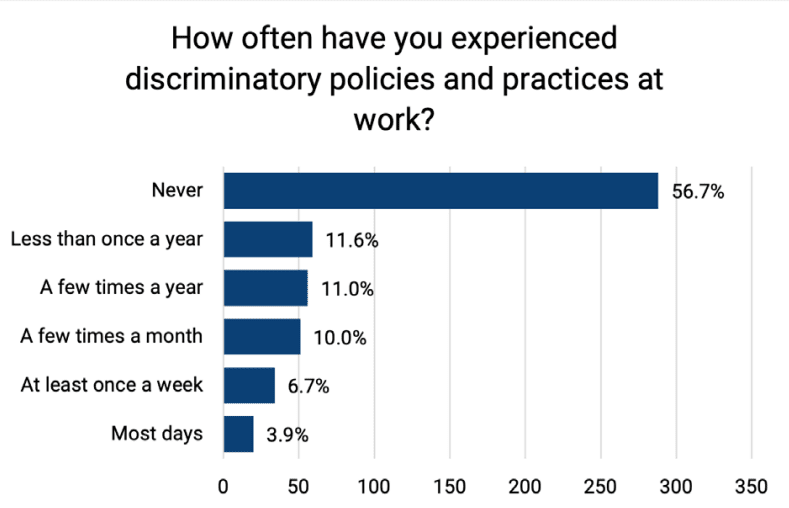
A large majority of Muslims who took this survey assessed their language proficiency as primary/native fluency (62%), professional working proficiency (33%) and limited proficiency (5%).
CAIR-WA estimates about 100,000 Muslims live in Washington. If the 542 respondents who took the survey matched the population of the state, that could be anywhere from 5,000 to 38,000 persons who still need help with their English.
Language access
While Cathcart admits he and others on the council could engage more with the Muslim community, he has championed and sponsored the Language Access Program ordinance to make the city inclusive for all.
If a population group of 700 or more exists, roughly 3.5% according to Cathcart, the city would offer them language service. Currently, in addition to English, the city has been working on getting important documents — such as utility bills, city council agendas, the city charter, permits, etc. — translated into Vietnamese, Arabic, Spanish, Russian and Marshallese.
The process has been a slow one, but Cathcart was able to present to his financial committee on Nov. 24 the beta mode of this “little portal.” He showed how one could drag and drop documents into it, pick a language and very quickly get the document translated in their language while maintaining the original format.
“It’s very accurate, but it’s not perfect yet,” he said. “It’ll still take some time to develop it and improve. … For me, transparency, openness, accessibility are really important, and it’s hard to do that if folks don’t have the ability to communicate and participate.”
All three women echoed that sentiment in their interviews.
“I think it gives them a sense of them mattering just as much as everybody else,” Stromgren said, referring to Muslims getting the voter’s guide in their language. “Because it’s in their language and because it comes to their home, they feel that you know … they should be included.”




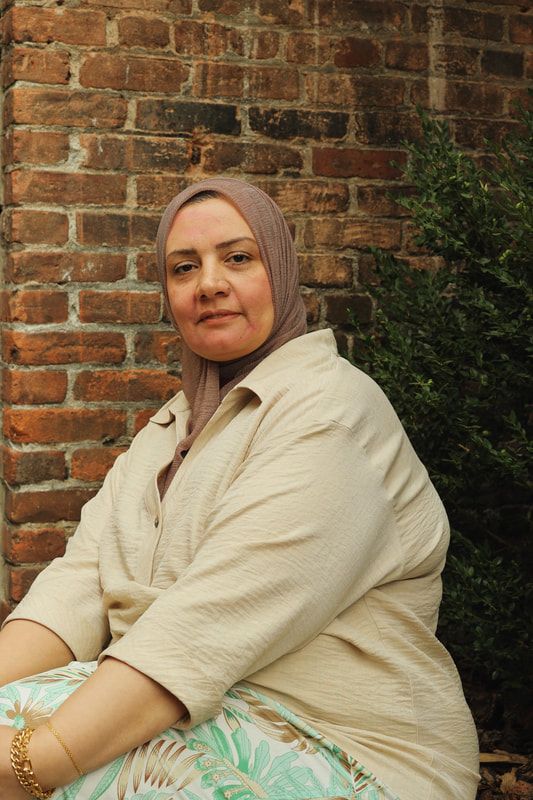
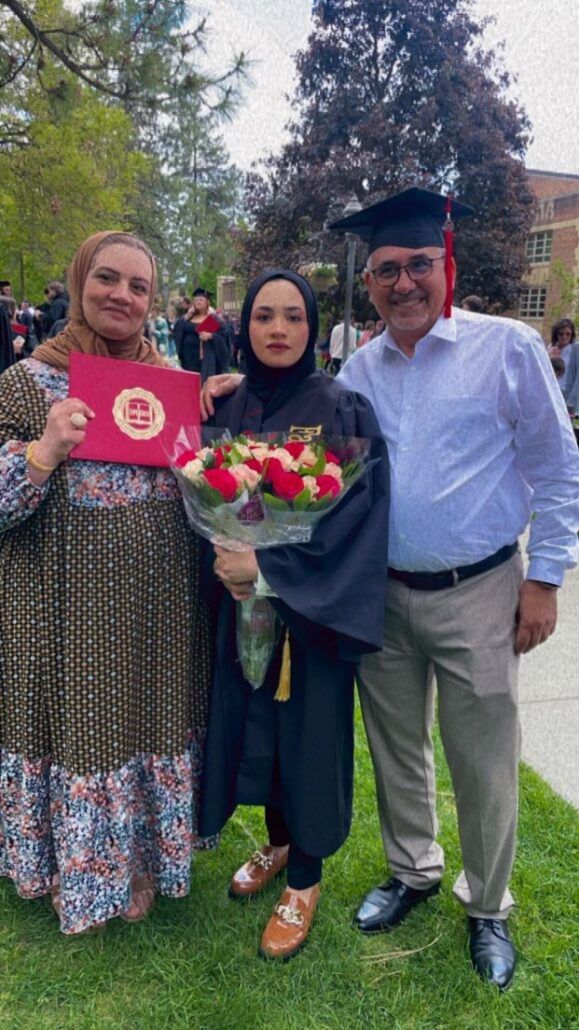
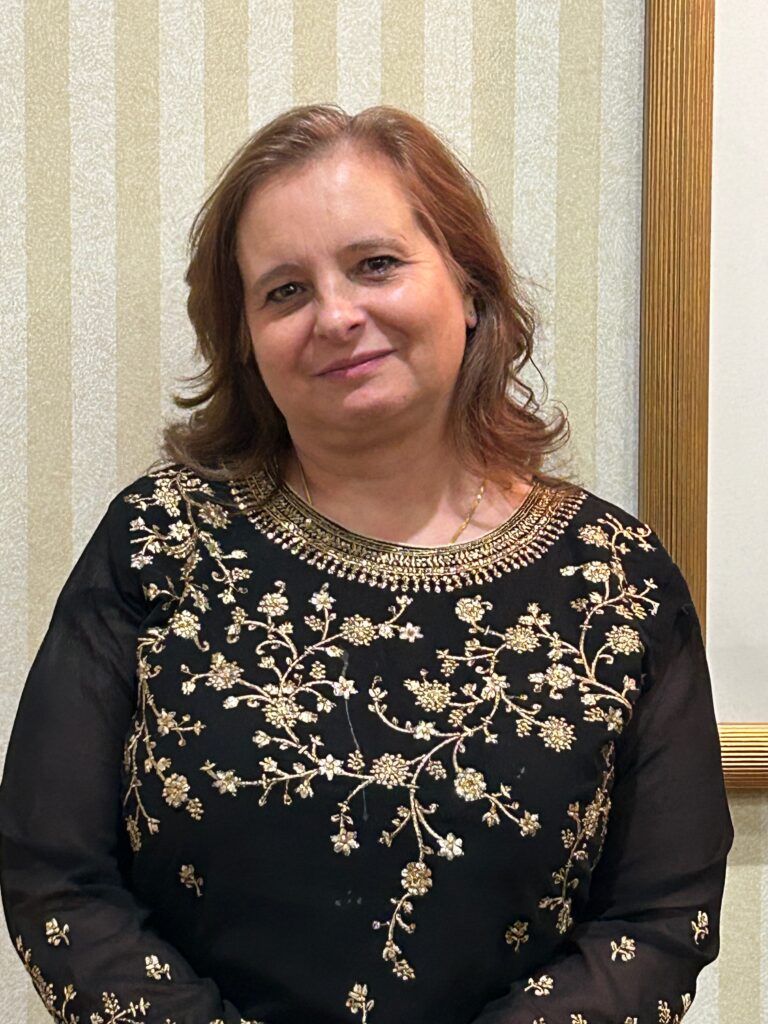





This made me cry. One of the Humanist Ten Commitments is to Peace and Social Justice. You really can’t have one without the other. #SupportPluralism